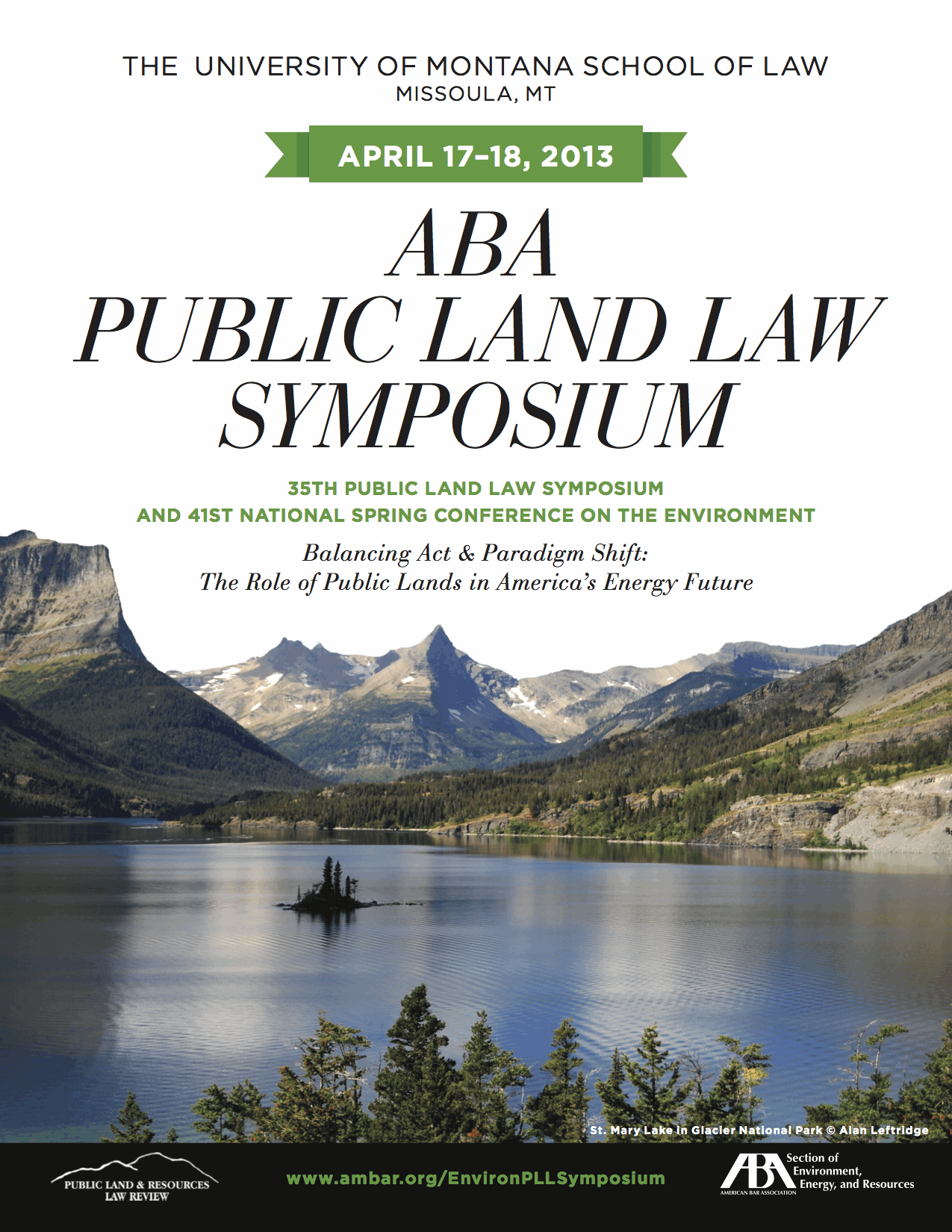
Oceans: A New Frontier for Renewable Energy?
Location
University Center Ballroom
Start Date
18-4-2013 11:00 AM
End Date
18-4-2013 12:30 PM
Description
This panel will focus on existing legal and regulatory programs and policies governing the development of energy in Oceans, and potential reforms to those programs and policies.
The Outer Continental Shelf is perhaps the least explored and least understood area of public lands and resources. The oil and gas industry has been drilling off-shore for decades, but now the ocean is recognized as a new frontier for renewable energy, as well. Beyond several well-publicized oil spills, few Americans think of Oceans as a public resource which is accessible, not only for development for carbon- based energy, but also as for new forms of alternative energy. Also, much like our rivers, parks, and National Forests, Oceans and tidal lands are, in many ways, sensitive ecosystems which must be protected and sustained for the future, in the public interest.
Panelists will consider whether existing laws and the regulatory programs created under them (such as those administered by the Bureau of Ocean Energy Management) are adequate, or whether new legal and regulatory approaches (such as improved marine spatial planning) are needed to effectively promote offshore renewable energy development while balancing ecosystem protection and restoration.
Moderator
Alexandra Dapolito Dunn, Executive Director & General Counsel, Association of Clean Water Administrators, Washington, DC
Treating Offshore Suberged Lands as Public Lands: Executive Summary
Oceans: A New Frontier for Renewable Energy?
University Center Ballroom
This panel will focus on existing legal and regulatory programs and policies governing the development of energy in Oceans, and potential reforms to those programs and policies.
The Outer Continental Shelf is perhaps the least explored and least understood area of public lands and resources. The oil and gas industry has been drilling off-shore for decades, but now the ocean is recognized as a new frontier for renewable energy, as well. Beyond several well-publicized oil spills, few Americans think of Oceans as a public resource which is accessible, not only for development for carbon- based energy, but also as for new forms of alternative energy. Also, much like our rivers, parks, and National Forests, Oceans and tidal lands are, in many ways, sensitive ecosystems which must be protected and sustained for the future, in the public interest.
Panelists will consider whether existing laws and the regulatory programs created under them (such as those administered by the Bureau of Ocean Energy Management) are adequate, or whether new legal and regulatory approaches (such as improved marine spatial planning) are needed to effectively promote offshore renewable energy development while balancing ecosystem protection and restoration.
Moderator
Alexandra Dapolito Dunn, Executive Director & General Counsel, Association of Clean Water Administrators, Washington, DC
